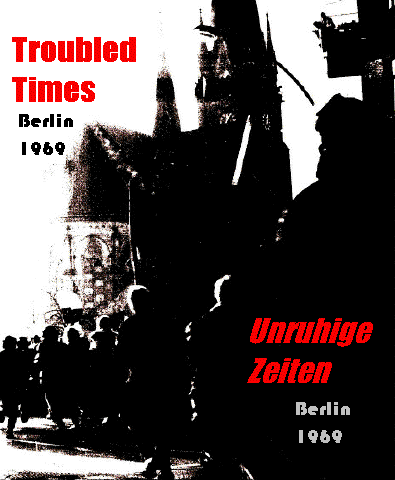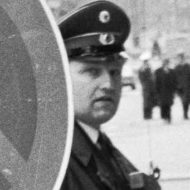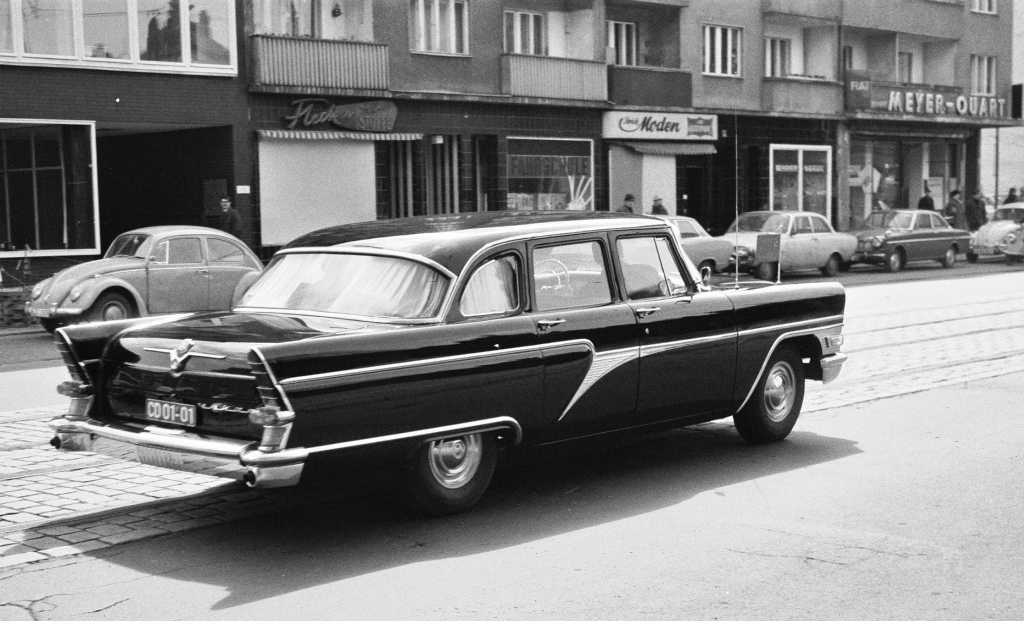The most comprehensive history in English of what U.S. Army Major General Chuck Scanlon (retired) has called “the dawn of modern terrorism.” Their story overlaps the time covered in this, the Berlin 1969 website. Their activities were carried out in the neighborhoods we lived in and eventually were directed against the U.S. military forces and dependents.
East Germany, Detente, and Ostpolitik, 1969-73.
A clipping from M.E. Sarotte’s 2001 book covering the same period as this website is available via Google Books. It provides a unique inside look at the Four Power negotiations, the East-West German dialog, and Ostpolitik through the use of file material previously unavailable in the West. The book may be ordered through:
The Tattered Cover, Denver, Colorado
or Powell’s New, Used and Out-of-Print Books, Portland, Oregon (as of May 2006, the hardcover edition was out of print).
In English, with some great discussions about the differences between English English, American English, and German, by Alexander Gross, “…an unrepentant spokesperson for the ‘Sixties…” His account ends just before I arrived, and sets the stage (Stage Left, that is) for the period covered by this website. Gross lived in Berlin and knew many of the leading radicals, as well as U.S. officials and Germans on both sides of the Wall. Ironically, readers now may have to plow through a gaudy capitalist WebRing to access it.
U.S. State Dept. documents – Germany and Berlin 1964-1968
In this and numerous additional pages on-line, the United States State Department documents what the people at the top were saying to each other– and some of it is pretty candid. Our leaders were dealing with the same problems as we common soldiers were, but at a different level. In the later parts of this discussion, American and German politicians and diplomats cope with the linkage of many issues sometimes thought of as separate by the casual reader. Clearly, the war in Vietnam was complicating U.S. relations with Europe and leaders on both sides found themselves frustrated by this. These documents set the stage for 1969 and the subsequent negotiations between East and West. For example:
78192. NATUS. Ref: Bonn’s 5716./2/ Subj: Dealing with French Obstructionism on Berlin and All-German Matters.
/2/Telegram 5716, November 29, made recommendations for dealing with possible French obstructionism. (Ibid.)
1. Department agrees with your assessment of French obstructionism on Berlin and All-German matters. We also agree that we may have to move independently on important cases when we meet French intransigence, to the extent of acquainting FRG Foreign Office with our view. We think that from past experience in such cases we have, at least, demonstrated to the Germans where the obstacle lies.
U.S. State Dept. documents – Germany and Berlin – 1969 – 1972
Released — in 2009 — hundreds of pages revealing the U.S. side of the negotiations on the status of Berlin and the U.S. role in the “three-dimensional chess game” of diplomacy involving the Western Allies, the two Germanys, the Warsaw Pact nations and many others. In these pages, which include candid excerpts from the Nixon tapes, we learn that they shared some of the same excitement and concerns of GI’s stationed in Berlin and diplomats participating in the Four Power negotiations. The complex interrelationships of this period draw in links with the Vietnam War, nuclear arms, the Soviet-Chinese border tension, and eventually, the American opening to China.
Willy Brandt, first known to Americans as the articulate mayor of West Berlin, actually Lord Mayor in British terms, led West Germans as their federal chancellor toward settlement of their issues with the governments of Eastern Europe. His work was at once exciting in opening up new possibilities and considered risky by those who were concerned that he would “give away” too much or provoke a right-wing reaction in West Germany. The most detailed coordination was needed between the Four Powers in Berlin, the West Germans (FRG/BRD) and the East Germans (GDR/DDR). Would everyone sing from the same sheet music? Was one of the six governments double-dealing? Or were they all? Brandt acted in a time when inaction might have seemed safest.
https://www.andrewlong.info/post/why-did-ulbricht-build-his-wall
British historian Andrew Long explains the reasoning and the worldview that resulted in the Berlin Wall.
Proceed to Nostalgia page. Or click on “Links” below to return to the section headings.
###


